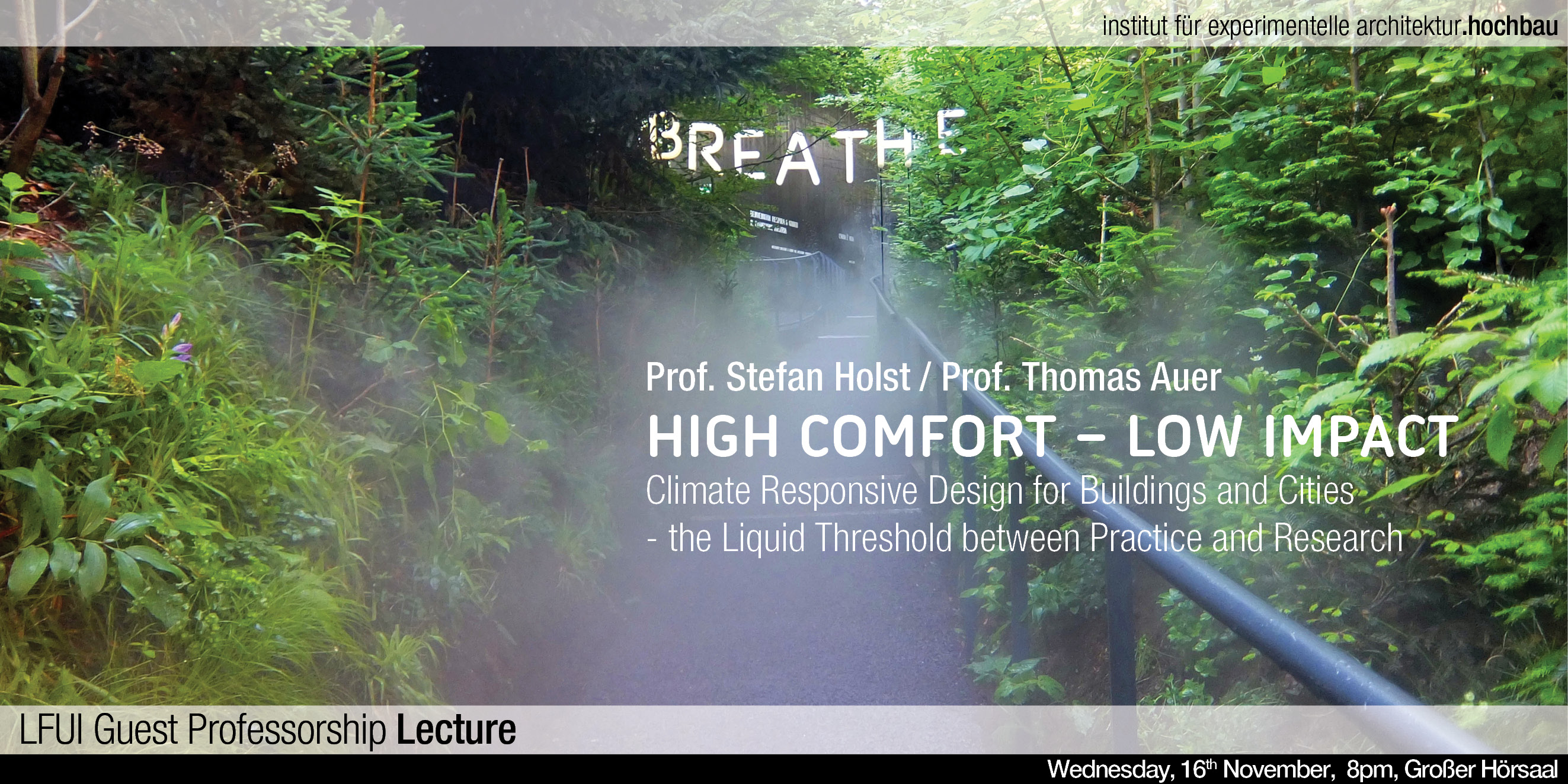Lecture TEST
Großer Hörsaal Technik CT TE013 Bauingenieurgebaude, InnsbruckINVITATION High Comfort – Low Impact: Climate Responsive Design for Buildings and Cities in Consultancy and Academic Research 16.11.2016 um 20:00 Uhr im Großen Hörsaal Vortragende: Prof. Stefan Holst, TRANSSOLAR Munich, LFUI Guest Professor, Innsbruck und Prof. Thomas Auer, TRANSSOLAR Stuttgart, TUM, Chair for Building Technology and Climate Responsive Design, Munich Climate responsive design means minimizing the negative impact of the exterior environment while taking advantage of potential natural energy sources. An energy efficient building does not have to be uncomfortable — in fact, they are often described by their occupants as more comfortable than conventional buildings. By creatively incorporating local resources as sun, outside air and earth into building systems a natural and healthy interior climate can be achieved. Enhancing the presence of daylight in a room not only minimizes energy expended on artificial lighting, it can also dramatically improve one´s architectural experience and provide a more pleasant working and living environment. Employing adaptive comfort with natural ventilation and radiant cooling eliminates the undesirable effects associated with traditional air conditioning. The principles of climate responsive design may be successfully applied to practically any city in any environment in the world. The application of climate responsive design principles in consulting […]
